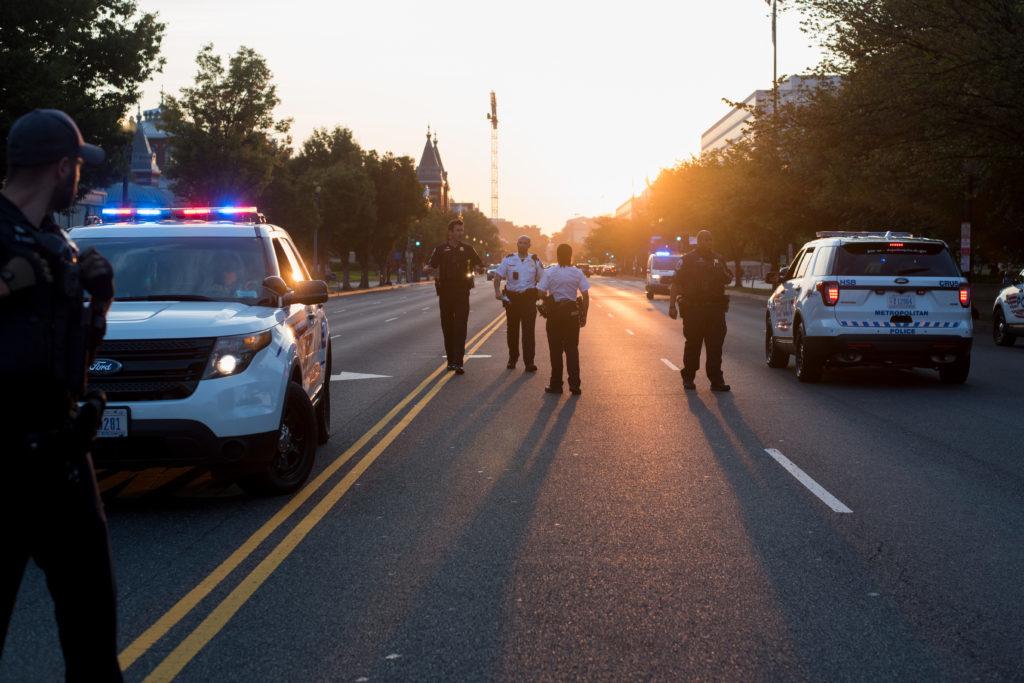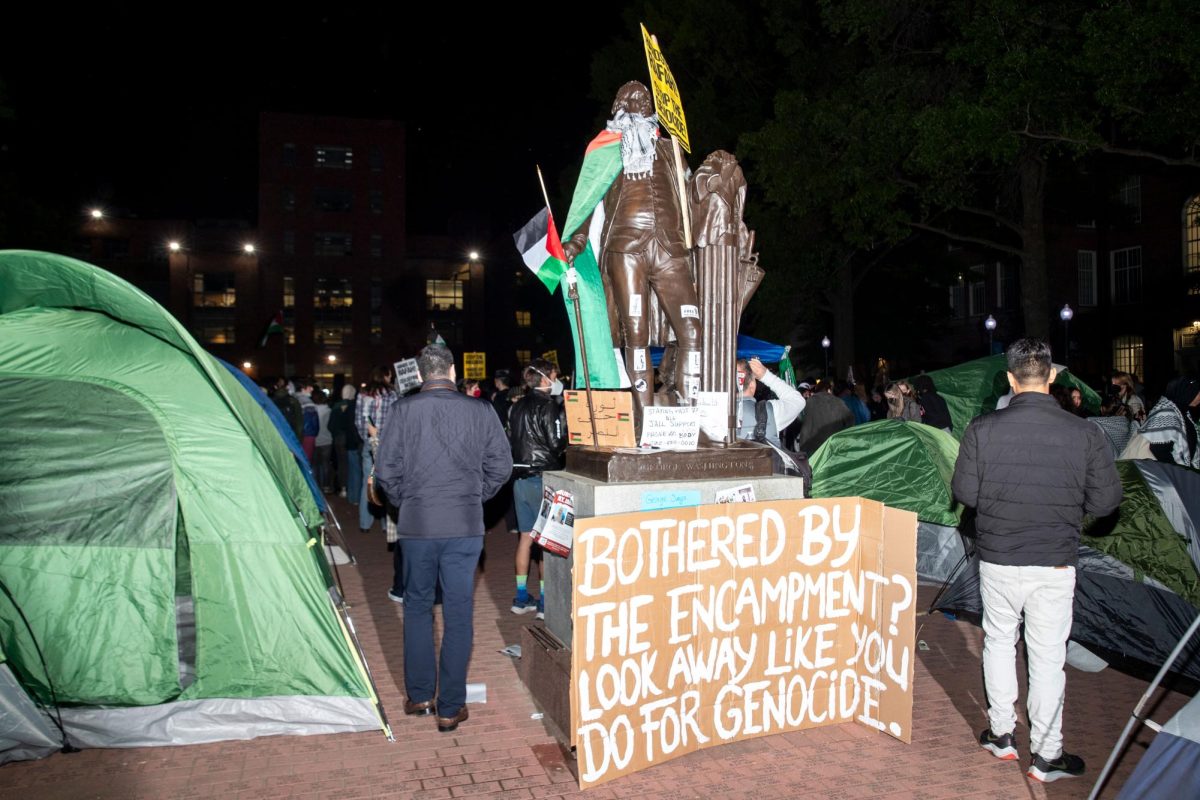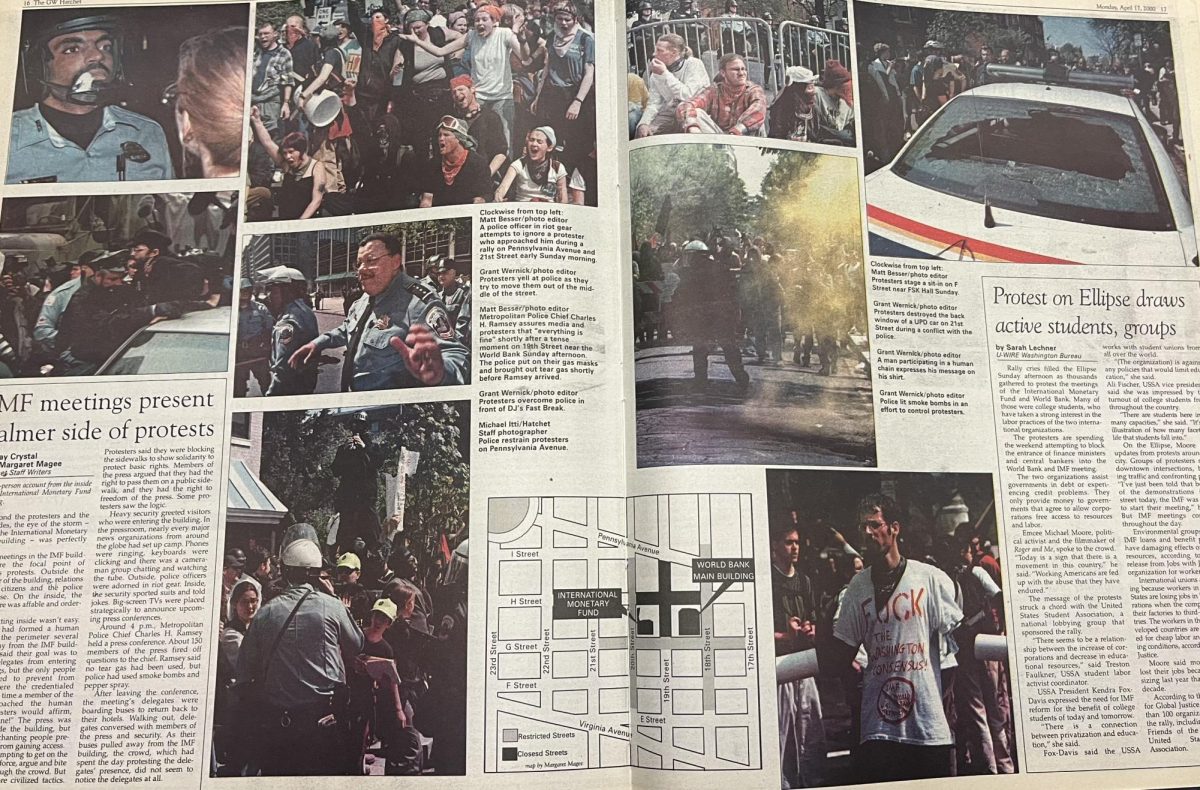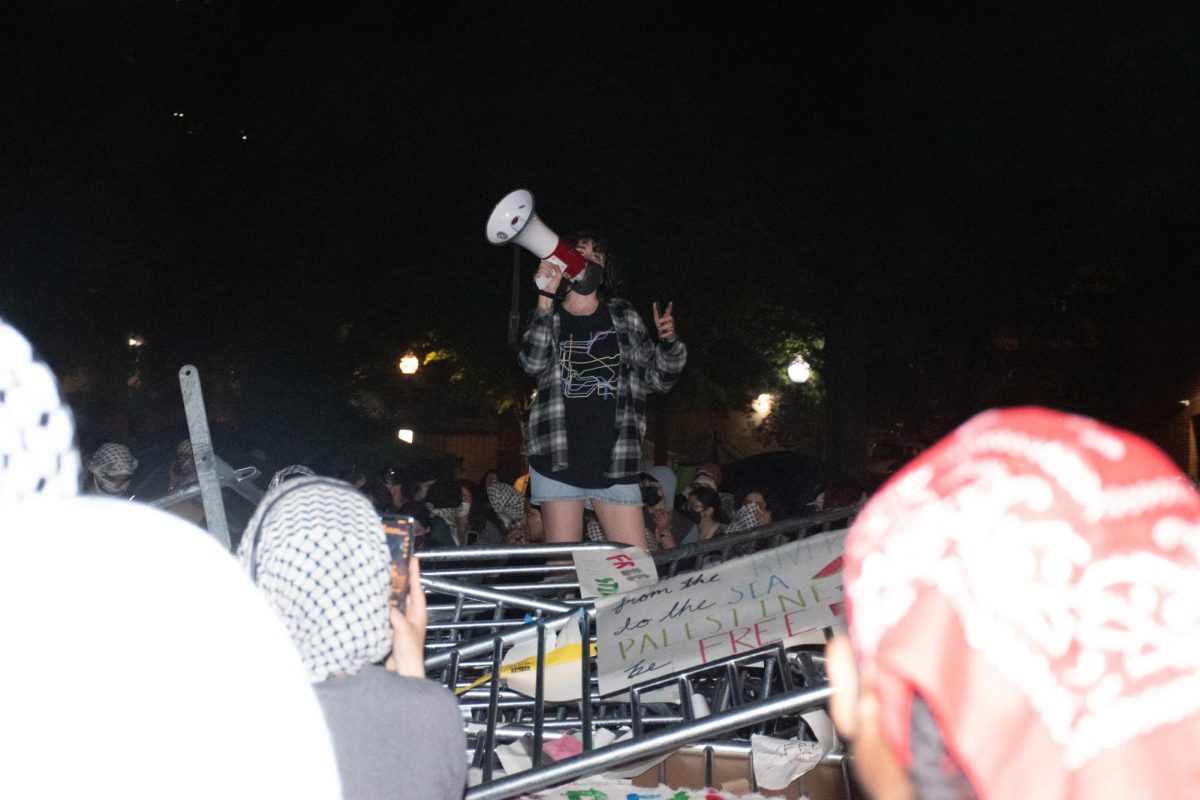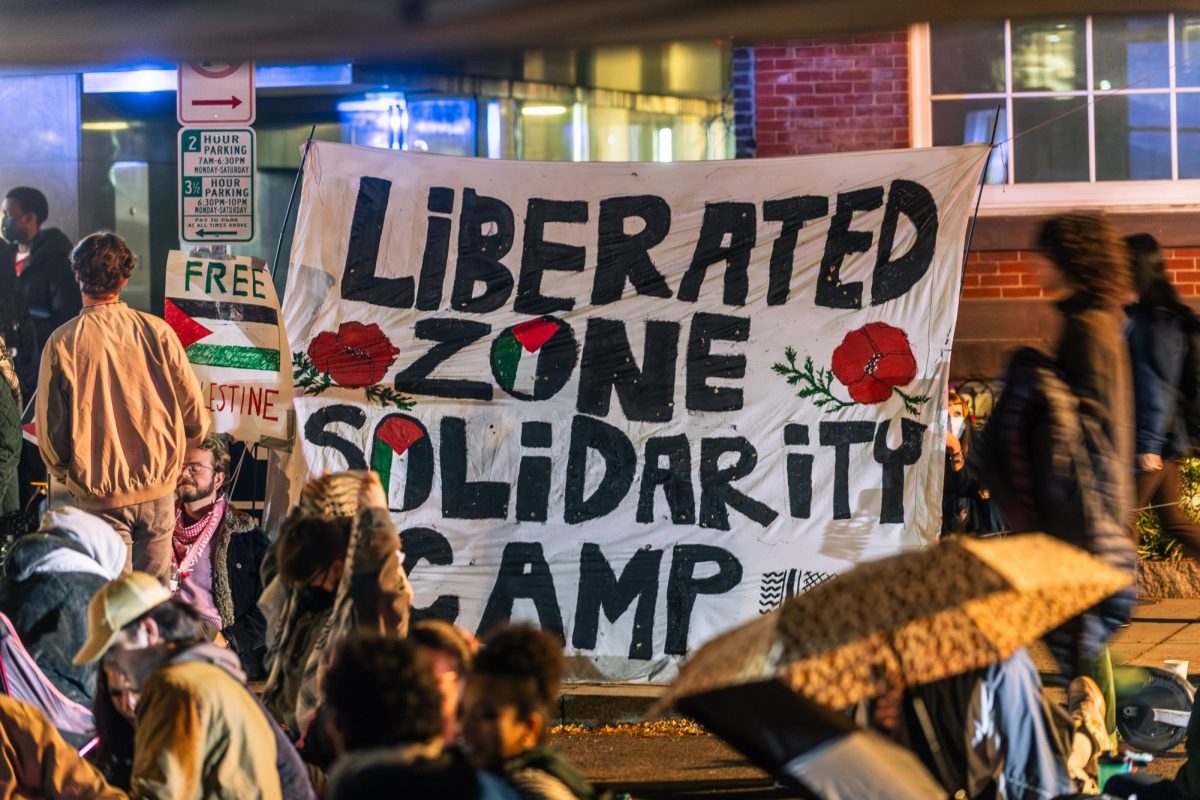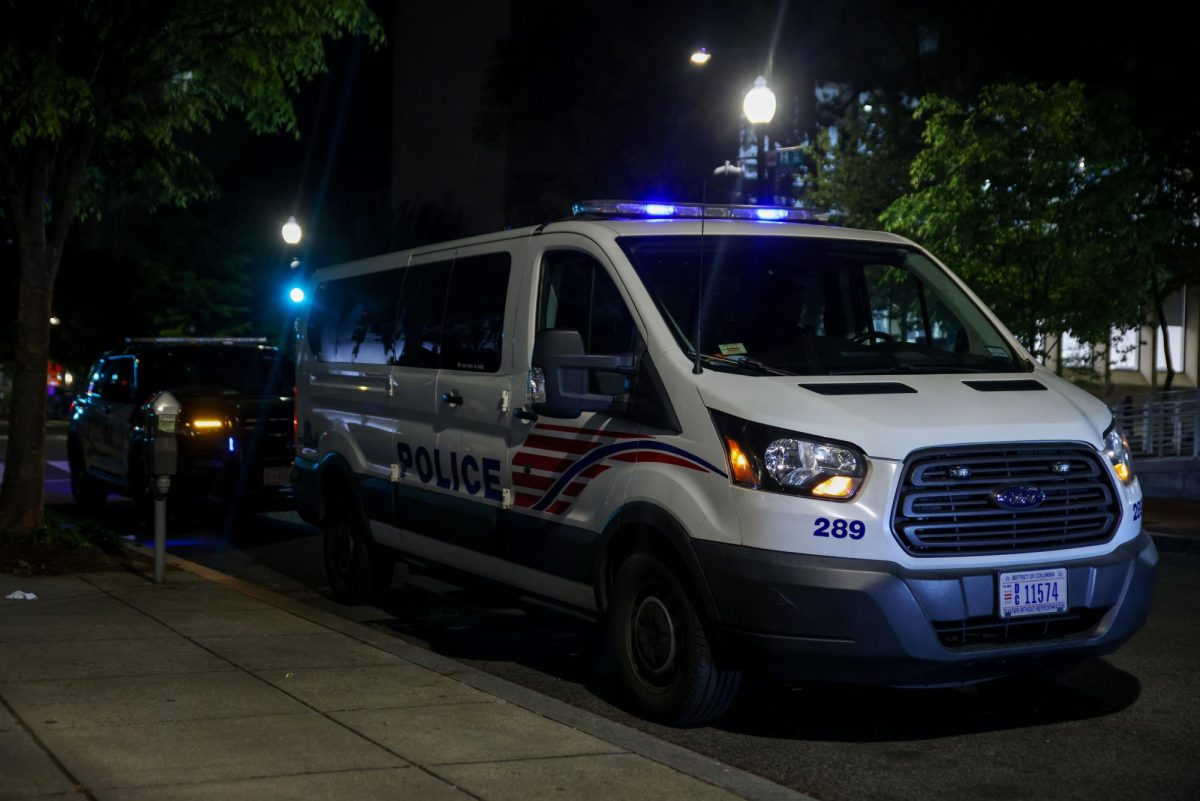The Black Student Union announced a partnership with community members, students and faculty Monday to research and draft reforms for the Metropolitan Police Department.
The BSU will work with the Nashman Center for Civic Engagement and Public Service and the sociology department this fall on a research project to recommend anti-racist policies to MPD, according to a release. BSU leaders said the group launched the partnership after meeting with MPD in early June and additionally plan to study youth diversion, a strategy that redirects minors away from formal processing in the juvenile justice system, and reduce actions and policies in D.C. policing that have a disproportionately negative impact on Black youth.
Bishop Walton, BSU’s chief of staff, said the organization’s call with MPD was originally designed only to discuss a list of seven appeals D.C.-area BSU chapters had submitted to the District in late May aimed at addressing discrimination and bias in policing. As the conversation shifted toward talking about solutions to decrease youth arrests, BSU saw an opportunity to take a lead in advocating for police reforms directly impacting the D.C. community, he said.
“Toward the end of the conversation, we started to get into one of our biggest concerns, which was youth diversion,” Walton said. “D.C. is kind of notorious for their youth arrests. And so that was where our passion was behind, making sure that is reduced in the District.”
He said the research project will start with a team of about a dozen selected student applicants who will conduct research with the assistance of faculty and staff from the Nashman Center. He said he hopes the team of researchers will be able to present a set of reforms to MPD by the start of 2021.
Walton said part of the research will examine MPD’s conduct in youth arrest cases and evaluate the language used to determine whether a juvenile qualifies to be enrolled in a youth diversion program. The D.C. Behavioral Health Court, which manages the Juvenile Behavioral Diversion Program, currently offers three tracks – pre-plea, pre-disposition and post-disposition – for qualified youth to accept while undergoing a trial to have their case dismissed, according to its website.
“We plan to start by looking at the history of policing, then looking at what D.C. has done before, looking at national policing standards and analyze the stats of MPD based on geography and racial disparities,” Walton said. “And so, through all of that, we hope to have policy recommendations at the end and how to implement it within a strategic outline.”
Amy Cohen, the director of the Nashman Center, said BSU reached out to sociology professor Fran Buntman, the director of the interdisciplinary law and society minor, and the Nashman Center to outline a program that would bring together students, faculty and community organizations to focus on the “essential” issues of anti-racist policing and youth development and engagement. Cohen said the research project is designed to promote equity in D.C. and at GW in alignment with the center’s core mission.
Cohen said the center will convene the group to determine specific research questions and providing a graduate assistant and Federal Work-Study students for additional assistance. Faculty members will guide the research using qualitative methods like historical research and interviews and quantitative research, using coding and data analysis, she said.
“Our research institution is ideally placed to convene this group, and the work done will contribute to excellence in our research and teaching mission,” Cohen said in an email. “Through this project, we hope to contribute to the quality of life in our community, address root causes and engage in rigorous research. In addition, the Nashman Center supports efforts to develop and create policies that are anti-racist and supports the efforts of the BSU.”


